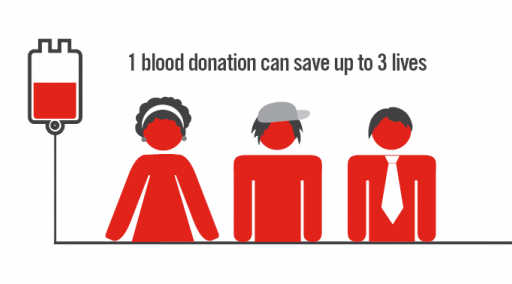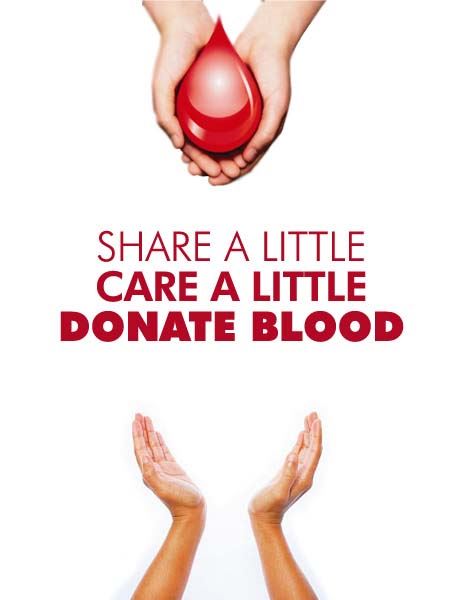Blood Donation - Information & Importance of Blood Donation
History of Blood Donation
The earliest documentation of blood transfusion is found in the religious text of many civilizations. The first documented demonstration of blood transfusion was between two dogs by Richard Lower in 1665. Landsteiner discovered the ABO Blood Group system in 1901, which is one of the most important landmark discoveries in the Transfusion Medicine. In the 1970s voluntary donors were accepted as blood donors. These donors were later on found to people having high-risk activities and the recipients were found to be suffering from liver diseases. This lead to another discovery of Hepatitis-B transmitted by donated blood. Since then testing for the hepatitis B antigen was implemented and this together with the cessation of paid donors reduced the incidence of post transfusion hepatitis. Further studies also made us include tests for Malaria, Syphilis, AIDS, and Hepatitis C to make the donated blood as safe as possible to the recipient.
What is blood?
One can almost say that blood is that magic potion which gives life to another person. Though we have made tremendous discoveries and inventions in Science we are not yet able to make the magic potion called Blood. Human blood has no substitute. The requirement of safe blood is increasing and regular voluntary blood donations are vital for blood transfusion services.

Why donate blood?
Do you know, someone in the US needs blood every two seconds, so donating blood is a phenomenal choice of doing a good deed. More than 41,000 blood donations are needed each day, and because blood cannot be manufactured, the only way to supply this need is via generous blood donors.

Who can donate blood?
The eligibility criteria for blood donation is simple. A donor should be between 18-55 years of age with a weight of 50 kg or above with pulse rate, body temperature, and blood pressure should be normal. Both men and women can donate blood. There are only a few conditions in which donors are permanently excluded. The donor with a history of epilepsy, psychotic disorders, abnormal bleeding tendencies, severe asthma, cardiovascular disorders, malignancy is permanently unfit for blood donation. Donors suffering from diseases like hepatitis, malaria, measles, mumps, and syphilis may donate blood after full recovery with 3-6 months gap. Also, people who have undergone surgery or blood transfusion may safely donate blood after 6-12 months for woman donors who are pregnant or lactating blood is not taken as their iron reserves are already on the lower side.
How much blood can be taken during blood donation?
Our body has 5.5 liters of the blood, out of which only 350 ml to 450 ml of blood is taken depending upon the weight of donor. The majority of healthy adults can tolerate withdrawal of one unit of blood. The withdrawn blood volume is restored within 24 hours and the hemoglobin and cell components are restored in 2 months. Therefore it is safe to donate blood every three months.

What is done with the blood collected?
The blood is collected in sterile, pyrogen free containers with anticoagulants like CPDA or CPDA with SAGM. This prevents clotting and provides nutrition for the cells. This blood is stored at 2-6 C or -20 C depending on the component prepared. Donated blood undergoes various tests like blood grouping antibody detection, testing of infections like hepatitis, AIDS, Malaria, syphilis and before it reaches the recipient it undergoes compatibility testing with the recipient blood.
Modern Blood Transfusion Practice
Modern blood transfusion basically deals with the optimal use of one unit of blood. One unit of whole blood is separated into components making it available to different patients according to their requirement. Thus one unit of blood is converted into packed cell volume, fresh frozen plasma, platelet concentrate, cryoprecipitate and granulocytes concentrate.
Another important practice is apheresis. This is the separation of only desired component from the donor and returns the remaining constituent back to the donor. This technique is also used for remaining pathological substance in patients. Withdrawal of blood for transfusion is regarded as a safe procedure now and blood donor has emerged as the single most vital link.
Health Benefits of Blood Donation
There are many benefits of blood donation to your health. Some are mentioned below.
- Blood donors have been found to be 88 percent less likely to suffer from a heart attack.
- Donating blood keeps the balance of Iron Levels in your blood. For each unit of blood donated, you lose about one-quarter of a gram of iron. You may think this is a bad thing, since iron-deficiency may lead to fatigue, decreased immunity, or anemia, which can be serious if left untreated but what many people fail to realize is that too much iron can be worse, and is actually far more common than iron deficiency.
- Repeated blood donations may help your blood to flow better, possibly helping to limit damage to the lining of your blood vessels, which should result in fewer arterial blockages.
- Blood donors are less likely to get heart attacks, strokes, cancers, and people who volunteer for altruistic reasons (those help others rather than themselves), appear to live longer than those who volunteer for more self-centered reasons.
- Repeated blood donations may reduce your risk of getting diabetes.
- The satisfaction that you get after donation cannot be expressed. It can only be felt. It is said that God loves a cheerful giver.
This blood donation information is very helpful, but I think it will be more helpful if you add more articles about the benefits of blood donation for the donaties.